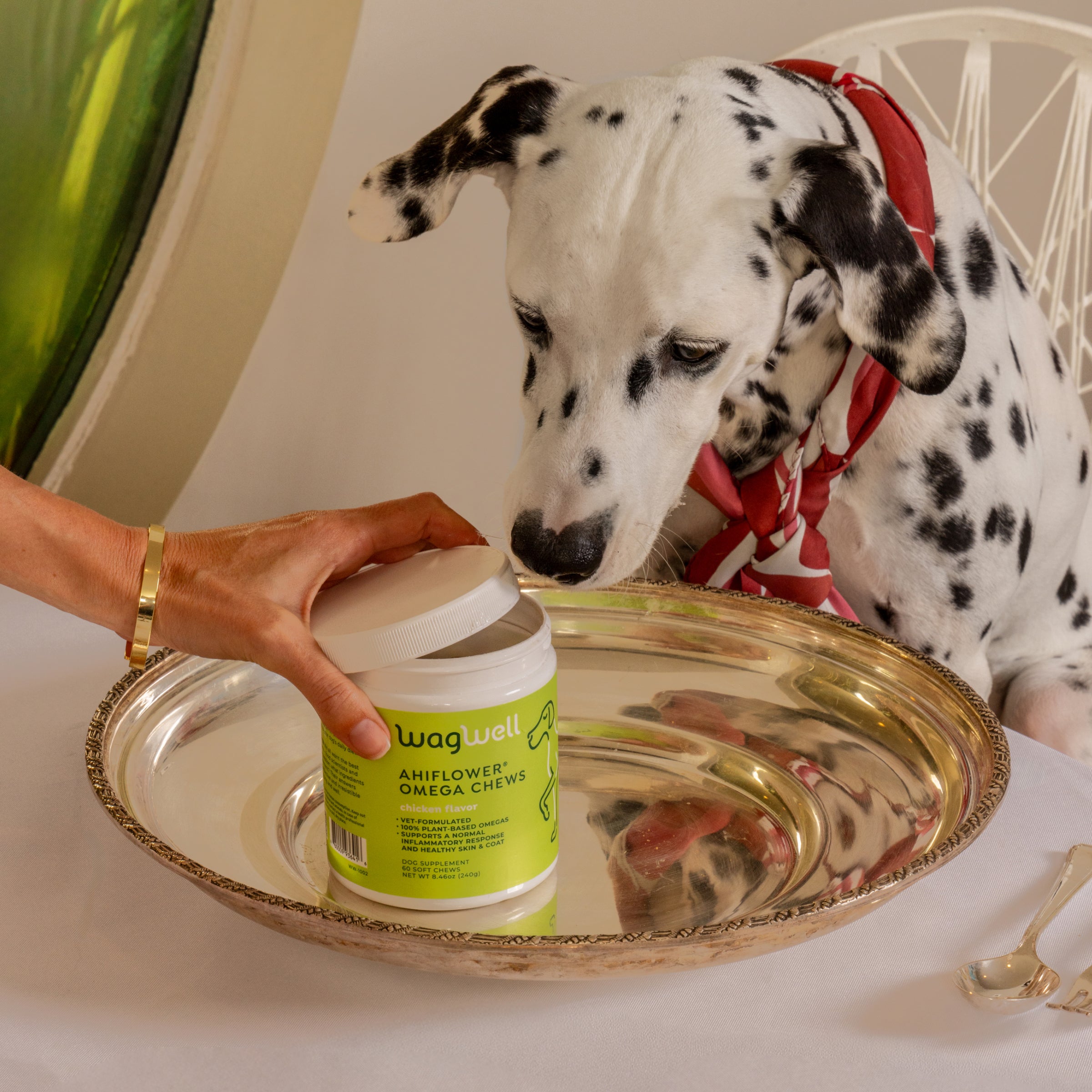We all want to see our dogs thrive and live their best life! Whether you have an energetic puppy who loves running after tennis balls or a senior dog who looks forward to their daily walks, hip and joint health is critical for dogs of all ages to stay active, comfortable, and happy. Learn how you can support your pup’s joint health and identify potential issues.
Causes of Joint Issues for Dogs
A wide variety of factors have been associated with joint issues in dogs and some of those risk factors are out of our hands, like genetics. However, there are other factors that you can influence or be on the lookout for so you can address your dog’s joint issues quickly and help keep them happy and healthy.
- Exercise – Physical activity is important to help maintain your dog’s joint flexibility and muscle development to help prevent joint stiffness as your dog ages.
- Obesity – Overweight or obese dogs are at risk of having joint health issues as they proportionately carry more weight on their joints leading to an increased chance of inflammation and damage. Unfortunately, overweight dogs damage their joints over a long period of time before we can see clinical evidence of the damage setting the stage for osteoarthritis.
- Age – As a dog ages the risk of osteoarthritis increases because the joint fluid that allows the joint bones to glide across each other freely can lose its lubricating properties. As a result, the joint is susceptible to friction between the bones and inflammation, which can reduce mobility and cause discomfort.
- Body Shape – Bone structure, size, and shape are important factors for a joint’s integrity and stability. Large breed dogs that are overweight are more susceptible to joint health issues and developing osteoarthritis.
Signs and Symptoms of Joint Problems
Dogs that experience mobility issues or discomfort associated with arthritis have a hard time hiding the symptoms. Be on the lookout for the following signs of potential joint issues:
- Visible Limping – this is the most noticeable sign your older dog is developing arthritis, as the dog is favoring one side to keep weight off the affected joint.
- Difficulty Standing, Sitting, or Laying Down – these actions can put pressure on the hind legs and hips and cause difficulty for once easy tasks.
- Reluctance to Climb or Descend Stairs – going up or down stairs is a stressful activity for dogs with joint pain. If your dog gives you that “you’ve got to be kidding me” look, you’ll know its time to visit the vet.
- Change in Temperament – being greeted at the door by your tail-wagging pup is always a highlight of the day, but when your pup develops chronic discomfort in the joints, this habitual greeting can become a thing of the past.
- Lethargic Behavior – Dogs are excited about running around, smelling new smells, and playing with their humans. Joint discomfort and pain can hamper this behavior in favor of “being lazy” or “tired”.
What to Do If Your Dog Has A Joint Issue
If you suspect that your dog may be experiencing joint or mobility issues, it is important that you consult your veterinarian so they can conduct a physical examination and assess their range of motion. Your veterinarian can then determine the optimal path forward and help you develop a plan to help your dog live their best life!
How You Can Promote Joint Health in Your Dog
There is plenty you can do to help your pup maintain healthy joints or manage their mobility issues.
- Weight Management – excess weight is potentially the biggest stressor on joints, thus getting your dog to its proper weight is essential for joint health.
- Improve Their Diet – a healthy diet with the right nutrient profile for your dog’s size, health, and age is important for keeping your dog in tip-top shape. Before you consider switching your dog’s diet, consult your veterinarian for a thorough physical and metabolic evaluation.
- Exercise – physical activity promotes healthy joint movement and helps maintain strong muscles that support the joints. If your dog is diagnosed with arthritis or has mobility issues, low-impact exercises such as walking or swimming also encourage muscle development without putting extra stress on the joints.
-
Supplements – joint supplements can help your pup maintain healthy joint function and mobility by aiding in the regeneration of damaged cartilage, the production of joint lubrication, and the reduction in inflammation. Ingredients to look for in hip & joint / mobility supplements include:
- Glucosamine – supports joint function by stimulating cartilage growth and promoting production of joint fluid, which reduces discomfort
- Chondroitin – promotes water retention, and elasticity needed for joint mobility
- MSM – natural sulfur compound that helps reduce inflammation and supports pain relief
- Omega-3 Fatty Acids – helps reduce joint inflammation and discomfort


